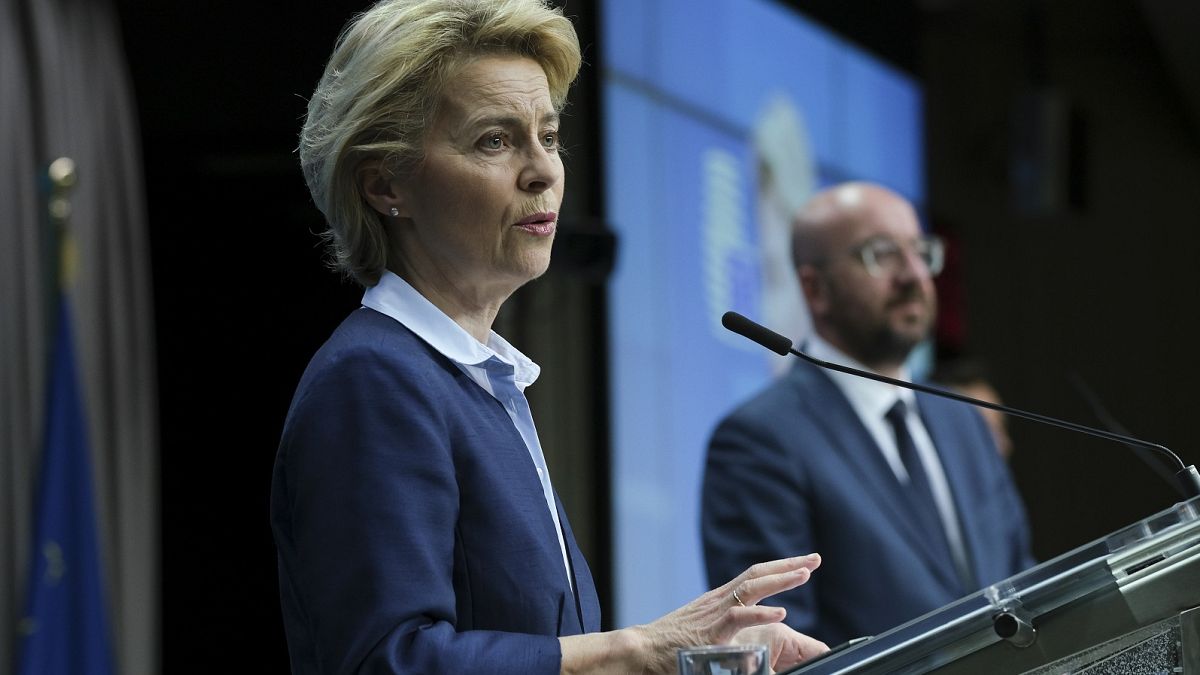In a post-COVID-19 world, protecting the security of Europeans will depend on holistic strategies to address long-term, systemic threats.
While it is still ironing out the final creases, the European Commission is set to soon release its proposal for the EU’s next long-term budget, revised to confront the shockwaves caused by the COVID-19 pandemic.
Commission President von der Leyen has framed the 2021-2027 Multiannual Financial Framework (MFF) as the EU’s “Marshall Plan” for post-COVID-19 recovery. The task of both containing COVID-19 and dealing with the economic shockwaves is hitting Europe hard. Its impact in fragile states - beset by violence, poverty, weak services and abusive leadership - could prove many times worse.
In the EU budget, member states and the European Parliament have an opportunity to adopt a strong package of prevention measures to protect Europe of the future in a coherent, sustainable way.
COVID-19 as a catalyst of conflict and rights abuses
COVID-19 will have devastating impacts in fragile states, and catalyse new instability.
In South Sudan, in a context of insecurity, hunger and weak institutions, COVID-19 has the potential to set in train a humanitarian catastrophe that could intensify conflict between communities. In the Sahel, lockdowns and the closure of borders limit access to trade, livelihoods and services for people already under pressure from conflict and climate change. The pressure brought by COVID-19 could push vulnerable communities into conflict.
Refugees, migrants and internally displaced people (IDPs) are particularly vulnerable to COVID-19 due to cramped conditions in camps, limited access to information, and restricted movement as countries close their doors to refugees.
The imposition of emergency measures in a climate of fear could have profoundly destabilising consequences. Governments are already taking advantage of the pandemic to harden the security response and crack down on political movements, with emergency laws deepening repressive governance. In the Philippines, President Duterte has ordered the police and military to shoot people who protest the government’s COVID-19 measures. Similarly, the abuses committed by security forces in Chad have created insecurity among the population.
A lack of international attention in conflict-affected and unstable countries could create “zones of impunity” and enable atrocities. Women are facing an increased risk of gender-based violence by partners and security forces, as justice systems become overwhelmed.
Given that a 5% decline in economic growth increases the likelihood of conflict by half in the following year, it is rational to expect that the economic shock from COVID-19, combined with existing inequality, exclusion and impunity, could feed social tensions and violence.
What should EU leaders do differently?
When revising the MFF, the EU needs to develop a coherent response to the tide of instability that will follow COVID-19.
The 2016 Global Strategy identified prevention of pandemics and conflict as priorities. However, member states have focused disproportionately on short-term, domestic security priorities rather than addressing the drivers of conflict. Underpinning this trend have been unbalanced threat assessments; migrant arrivals and armed groups outside Europe have increasingly crowded out all other considerations, to be contained through investment in militarised responses.
In February, while the virus had already claimed thousands of lives, the EU’s foreign policy chief Josep Borrell called the EU to provide more guns to Africa to tackle the danger posed by armed groups. As the pandemic unfolded, the European Commission announced €160 million to boost the defence industry.
COVID-19 has highlighted the weaknesses of the EU’s focus on counterterrorism and migration control. Hard security approaches, such as training and equipping third country security forces through migration partnerships or the proposed European Peace Facility, do little to address threats posed by pandemics, climate change, inequality and abusive regimes. Instead, these approaches compound violence and grievances, strengthening authoritarian leaders whose behaviour worsens systemic problems.
In its budget negotiations, the EU has an opportunity to revive the comprehensive approach of the Global Strategy, and invest in a strategic prevention response to the instability COVID-19 will unleash.
There are several ways in which European leaders could bolster conflict prevention in the next MFF. Addressing conflict drivers by incentivising rights-based governance, inclusive decision-making, human security, access to healthcare, food security and gender equality are essential.
International oversight is needed to ensure that governments do not use COVID-19 to justify securitised approaches, limit civil liberties or oppress populations. The MFF should condition further funding on the safeguarding of democracy and civil society, and be backed by robust monitoring mechanisms.
“Do no harm” considerations are too often an afterthought in times of crisis or rapid change. The MFF should assert that sensitivity to the risks of fuelling divisions are in-built to Europe’s COVID-19 response, and that more assistance will go through local civil society and women’s organisations, who are best placed to address the priorities of communities sensitively and legitimately.
In a post-COVID-19 world, protecting the security of Europeans will depend on holistic strategies to address long-term, systemic threats. Finding money for arms manufacturers and migration containment, while under-resourcing prevention and solidarity with affected populations, not only fails to mitigate the destabilising impacts of COVID-19 but reinforces the failed approaches of the past.
- Lucia Montanaro is Saferworld’s Head of EU Office. Tuuli Räty is its EU Policy and Advocacy Officer.
____________
Are you a recognised expert in your field? At Euronews, we believe all views matter. Contact us at view@euronews.com to send pitches or submissions and be part of the conversation.
